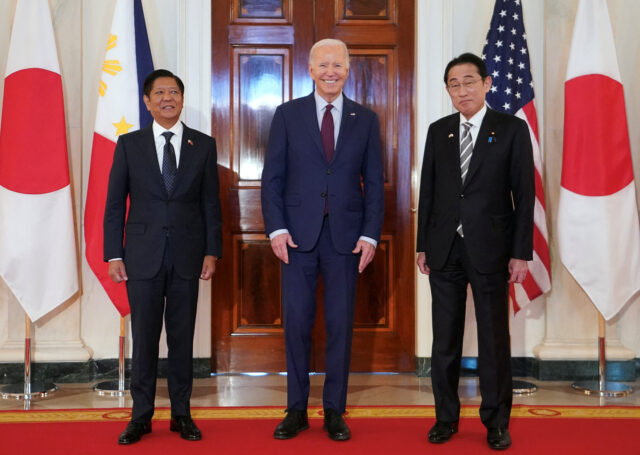The Philippines will limit the number of military bases used by the US to the current nine, President Ferdinand Marcos Jr. clarified on Monday. He was responding to China’s concern that with the number of bases having risen from five to nine with some near areas where waters are contested, tensions could escalate.
But President Ferdinand Marcos said that under the Enhanced Defense Cooperation Agreement, the number of bases would not increase. He told foreign journalists in Manila that “The Philippines has no plan to create any more bases or give access to any more bases.”
This stance comes after discussions last year considered yet another expansion in the number of bases accessible to U.S. forces. The geopolitical tension is particularly sharp around three of the four newer sites that face north towards Taiwan, and another near the Spratly Islands in the South China Sea. This area has been a hotbed of maritime disputes between Manila and Beijing, marked by aggressive manoeuvres including the use of water cannons and ramming tactics by Chinese forces.
The situation in the South China Sea, a vital maritime route that sees over $3 trillion in ship-borne trade annually, was a topic of discussion during a recent trilateral summit in Washington. This summit, hosted by U.S. President Joe Biden and attended by both President Marcos and Japanese Prime Minister Fumio Kishida, addressed concerns over China’s “dangerous and aggressive behaviour” in the region.
Despite these tensions, President Marcos emphasised that the trilateral cooperation is aimed at strengthening ties rather than opposing any nation. The dialogue at the summit, however, contrasted with ongoing challenges faced by the Philippines in its efforts to explore and develop oil and gas resources in the South China Sea. Disagreements persist over sovereignty, with China asserting jurisdiction over the contested areas, a claim firmly rejected by Manila.
President Xi Jinping of China has expressed a willingness to resume dialogue on joint oil and gas exploration, yet as President Marcos noted, substantial legal disagreements remain unresolved, highlighting the complex interplay of national interests and international diplomacy in the region.
(With inputs from Reuters)
















